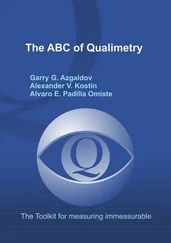Mma Ramotswe looked at her watch as she drove away from Mma Makutsi's house. It was almost twenty to ten; their easy, woman-to-woman conversation had made the time pass quickly. Twenty minutes to ten; if Mr. J.L.B. Matekoni had finished work at eight o'clock-and surely it would have been unreasonable for them to keep him beyond that time-then he should have been back by nine fifteen. Of course he would have had to run Charlie home, and that could take, what? Fifteen minutes, perhaps. There was not much traffic at this hour, and none of those frustrating waits at traffic lights and intersections. If he had reached Game City at half past nine, allowing for a few minutes' delay at the police roadblock near the Mokolodi turn-off, then with fifteen minutes to get to Charlie's house and back… quarter to ten, then. But you always had to allow ten minutes or so leeway, so that meant that ten o'clock would be the latest she should expect him back. Now, if she took ten minutes to drive from Mma Makutsi's place back to Zebra Drive, then she should arrive back at the house at roughly the same time as he did.
She glanced in her rear-view mirror. Mma Makutsi had switched on a light, a single bulb outside her front door, and was waving. Goodnight, Mma: I am grateful to you. I am grateful to you for being my assistant and having all those peculiar ideas and insisting on them. I am grateful to you for being who you are: for standing up for ladies with large glasses and a bad skin and for everybody else who has had to battle to get where they have got. And most of all I am grateful to you for being my friend, Mma; I am grateful to you for that. That is the best thing that anybody can be to anybody else-a friend.
Her thoughts returned to Mr. J.L.B. Matekoni. Somewhere in this country, somewhere in Botswana that day, somebody had been given news that would end their little world. Somebody, some unknown person somewhere, was being told that somebody else was not coming back. And all that stood between that poor person and oneself was chance, and luck, and forces that we would never master or understand. What if it was she who would be the recipient of such news this night? No, she could not think about that, she would not. But it could happen, couldn't it?
She turned into Zebra Drive. Her hands were shaking now, and inside her, in that strange, indefinable region where the physical side of dread makes its presence known, she felt a sense of dreadful imminence, a rawness.
Her gate appeared before her, and beyond that, in the beam of the headlights, the four small pillars of her verandah. She swung the van round to negotiate the turn into the short drive and as the beam of the lights moved round she saw the back of the truck, the lights still glowing red. The other vehicle's lights went off, but it was now illuminated in her headlights, and she saw Mr. J.L.B. Matekoni step out and dust off his trousers, as he always did when he alighted from his truck. And she stopped her van where it was, some yards short of its normal place at the side of the house, and she got out and ran to him, the lights of the van still burning-to show the world, if anybody was walking in that darkness along Zebra Drive, if anybody cared to look, the reunion, after one day away, of a man and his wife, of Mr. J.L.B. Matekoni, returned safely from Lobatse, the finest mechanic in Botswana, and Mma Ramotswe, his wife, who loved him more dearly than she had ever loved anybody else before, with the possible exception of Obed Ramotswe, her father, retired miner, fine judge of cattle, now late.
CHAPTER SIXTEEN. CHARLIE LOOKS AT BEDS
BIG MAN TAFA'S WIFE, Mmakeletso, had said that her husband had said-so much of what Mma Ramotswe was picking up was second-hand information, hearsay as Clovis Andersen would put it-that Mr. Molofololo was, amongst other things, impatient. Well, he is, thought Mma Ramotswe, as she listened to him on the telephone the next morning.
“Have you found this man, Mma Ramotswe? You have had quite a few days now. Which one is it?”
Mma Ramotswe raised an eyebrow, silently mouthing the liquid syllables of his name to let Mma Makutsi know who was on the other end of the line: Molofololo.
“We have been making good progress, Rra,” she assured him. “My assistant and I are actively interviewing the players on that list you gave us. We are uncovering a considerable amount of information. Many interesting things.”
“Such as?” Mr. Molofololo snapped.
Mma Ramotswe hesitated. She could hardly tell him-at this stage at least-that some of the players, possibly most of them, found him an irritation. Nor did she want to tell him that Big Man Tafa was in debt and that he wanted Rops out of the way, or that Oteng Bolelang was arrogant and considered Big Man Tafa to be in need of glasses. So she simply said, “Many interesting things, Rra, that I shall be using to build up a picture of what's going on.”
“But I know what's going on,” said Mr. Molofololo. “What's going on is that one of my players is throwing the matches. We have a traitor, Mma, and that is why I'm paying you good money to find out who it is.”
Mma Ramotswe thought that she might point out that he had paid nothing so far. She had asked for a small sum on account, but her request had been ignored.
“I think we should meet soon, Rra,” she said. “Then we can have a good talk about the case. It's not easy to talk about these things on the telephone.”
Mr. Molofololo was quick to accept the offer. “You could come to the match on Saturday,” he said. “We're playing the Molepolole Squibs. Come to that and we can talk then.”
Mma Ramotswe thought of her weekend. She had already sacrificed one precious Saturday afternoon to sit watching an unintelligible set of events unfolding on the pitch, and she did not see any point in doing that again. Puso, on the other hand, would very much see the point.
“I think that it is best to talk somewhere else,” she said. “There is always too much going on at a football match and… and I must be discreet, you know.”
“Ah yes,” said Mr. Molofololo. This was how he imagined detectives operated-discreetly. “You're right, Mma. Keep a low profile. But what about Puso-that is his name, isn't it? He is a good little boy-would he like to come to the match?”
“He would like that very much, Rra. You are very kind.”
“And then we can talk on Monday?”
“On Monday, Rra. And by then, I hope, I shall have something for you.”
She regretted that remark the moment she had made it. It was a bad mistake to tie yourself down to deadlines-it was a bad mistake to make promises in general-but there was something about Mr. Molofololo's manner-his pushy, rather hectoring style-that led to this. Was this what the players objected to, she wondered, and could it have triggered sufficient resentment in some breast to motivate treachery?
She replaced the receiver after her conversation with Mr. Molofololo and exchanged glances with Mma Makutsi.
“More interviews, I'm afraid, Mma,” she said.
Mma Makutsi shrugged. “We will know a lot about football at the end of it all, Mma. We will be able to talk to men about it.”
Mma Ramotswe chuckled. “I believe that there are some ladies who learn about football in order to do just that. They know that that is what men like to talk about. It helps them find men.”
“Violet Sephotho,” said Mma Makutsi.
Mma Ramotswe kept a tactful silence.
“Yes, Violet Sephotho is the sort who would do that,” Mma Makutsi went on. “Football, furniture-she'll do anything to get her hands on a man.”
“Are you still worried?” asked Mma Ramotswe.
“Of course I'm worried, Mma. Phuti is a good man, and I trust him. But even a good man can sometimes be… not so good.”
Читать дальше











